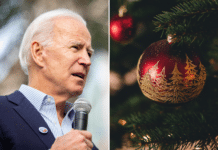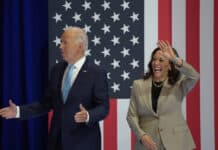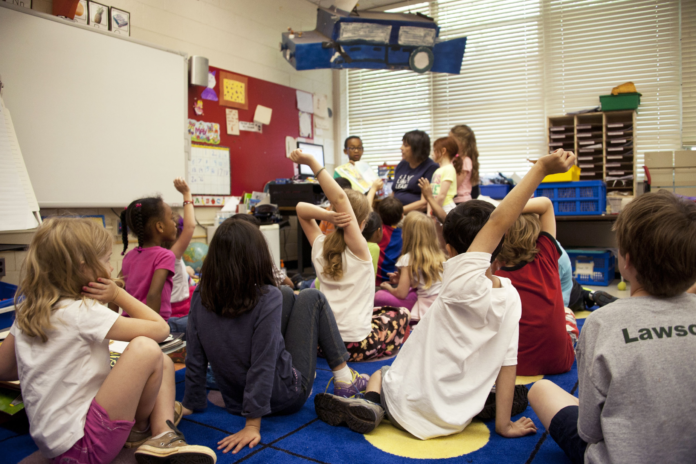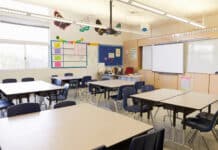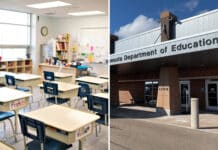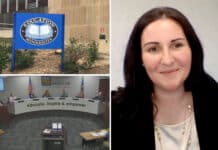(Foundation for Economic Education) — Mandatory teaching standards that focus on critical theory and identity politics to the detriment of liberalism and individualism are already working their way through state legislatures.
Now, math education itself has been deemed “racist.” A group of educators just released a document calling for a transformation of math education that focuses on “dismantling white supremacy in math classrooms by visibilizing the toxic characteristics of white supremacy culture with respect to math.”
Among the educators’ recommendations, which officials in some states are promoting, are calls to “identify and challenge the ways that math is used to uphold capitalist, imperialist, and racist views,” “provide learning opportunities that use math as resistance,” and “encourage them to disrupt the disproportionate push-out of people of color in [STEM] fields.”
Beyond activism, these recommendations also argue that traditional approaches to math education promote racism and white supremacy, such as requiring students to show their work or prioritizing correct answers to math problems. The document claims that current math teaching is problematic because it focuses on “reinforcing objectivity and the idea that there is only one right way” while it “also reinforces paternalism.”
Prominent professors push back
This week, some prominent university professors spoke out against these new woke math education recommendations. Princeton mathematics professor Sergiu Klainerman wrote a guest post on the topic at journalist Bari Weiss’s website. He says: “Attempts to ‘deconstruct’ mathematics, deny its objectivity, accuse it of racial bias, and infuse it with political ideology have become more and more common — perhaps, even, at your child’s elementary school.”
Klainerman, who grew up in communist Romania, warns that this current classroom dogma is dangerous. He writes: “When it comes to education, I believe the woke ideology is even more harmful than old-fashioned communism.”
Columbia University English professor John McWhorter also chimed in against this math education document and its recommendations.
“This lovely pamphlet is teaching us that it is racist to expect black kids to master the precision of math,” he writes in a blog post. “To wit — its message, penned by people who consider themselves some of the most morally advanced souls in the history of the human species, is one that Strom Thurmond would have happily taken a swig of whiskey to.”
“This, folks, is the ‘Critical Race Theory’ that so many of us are resisting, not a simple program for ‘social justice,’” McWhorter later adds. “To distrust this document is not to be against social justice, but against racism.”
While the growing emphasis on critical theory in American classrooms has broader societal implications, including the devaluation of objectivity and individualism, the real victims of this educational approach are the students themselves. In one of his final articles before he died last December, economist Walter Williams decried the poor academic performance of students in large urban school districts.
“In two city high schools,” Williams wrote of Detroit, “only one student tested proficient in math and none are proficient in English. Yet, the schools spent a full week learning about ‘systemic racism’ and ‘Black Lives Matter activism.’”
Public school exodus
As this “woke” worldview continues to penetrate classrooms with mandatory curriculum standards, families who don’t agree with this ideology—or who simply want their children to learn basic academics—should have the opportunity to pursue alternatives to their assigned district school. Currently, 26 states have active school choice legislation that would enable funding to follow students, including adopting education savings accounts or tax-credit scholarship programs. Meanwhile, overall support for school choice policies has grown since last spring.
The COVID-19 school shutdowns have put parents back in charge of their children’s learning in ways that were unimaginable pre-pandemic, with many parents leaving their district schools in droves. Indeed, the Associated Press reported a sharp decline in public school enrollment this academic year across the 33 states for which data were available. Millions of families have pursued private education options such as independent schooling and homeschooling that can offer more consistent, higher-quality in-person instruction than a district’s Zoom schooling or hybrid offerings.
As the New York Times reported on Monday, fewer than half of K-12 students are currently attending full-time, in-person schooling and families are increasingly seeking other options.
“Now many parents are beginning to rebel, frustrated with the pace of reopening and determined to take matters into their own hands,” the Times reports. “Some are making contingency plans to relocate, home-school or retreat to private education if their children’s routines continue to be disrupted this fall—a real possibility as some local school officials and teachers’ unions argue for aggressive virus mitigation measures to continue, potentially even after educators are vaccinated.”
The amplification of “woke” ideology in classrooms is likely to accelerate the current exodus from district schools. Parents have experienced a renewed sense of responsibility over their children’s education. Now they in many cases have had a front-row seat to what their children are actually learning through Zoom school, and hopefully will feel more empowered to push back against new critical theory curriculum standards—and choose education that values individualism over collectivism.



